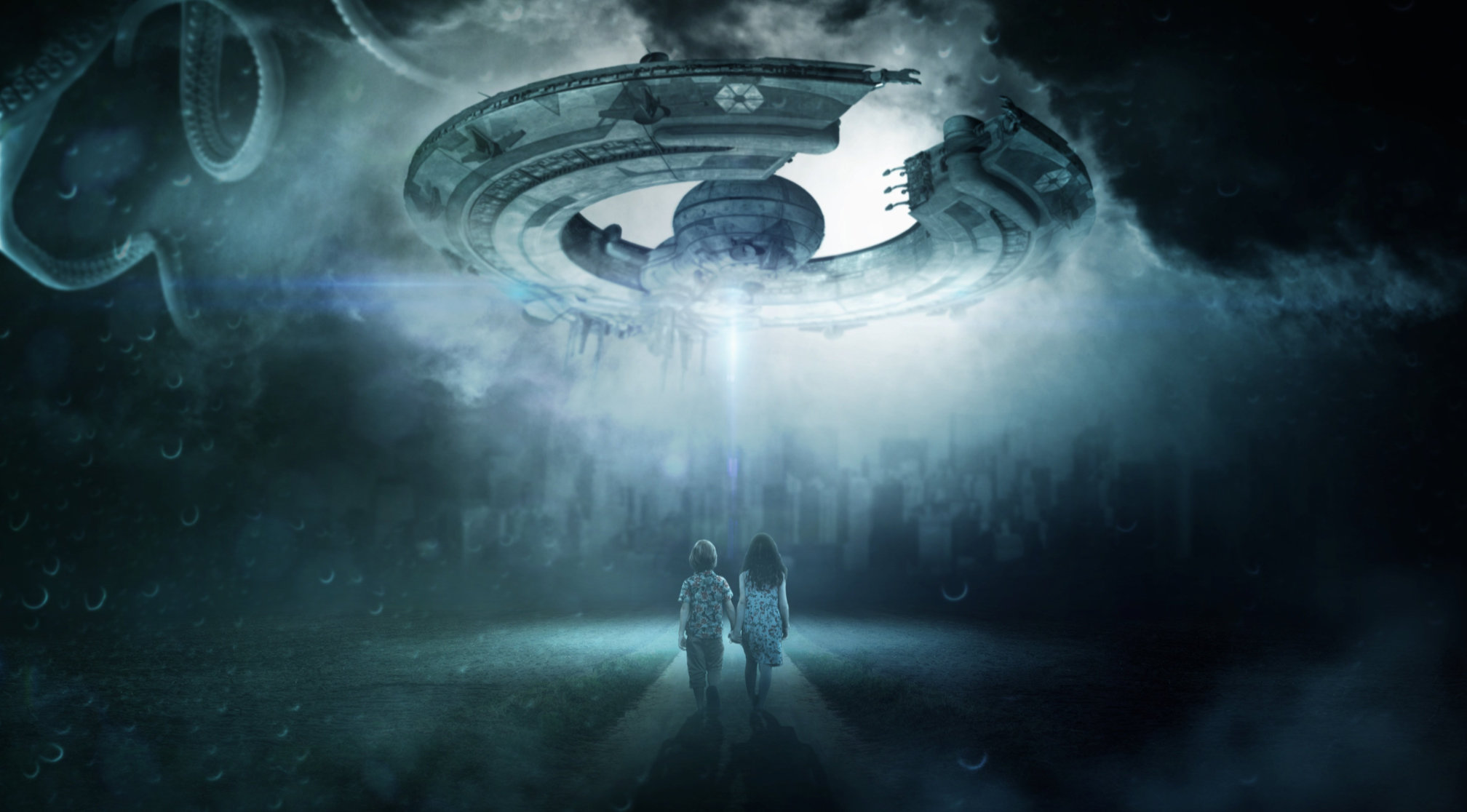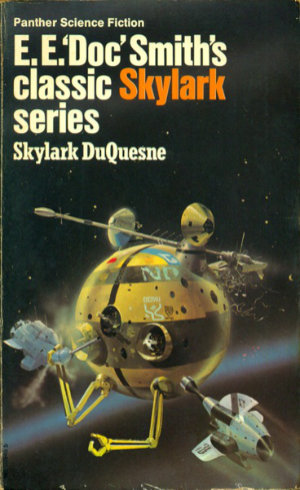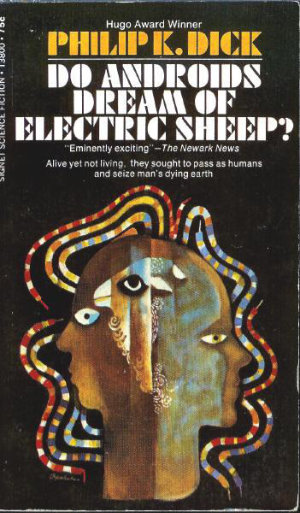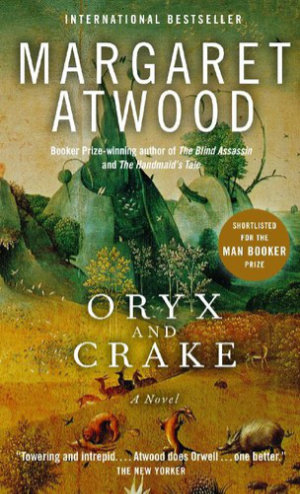Science Fiction: Serious Literature or Commercial Pulp?

One of the arguments I regularly hear from the literati is that science fiction doesn’t count as ‘serious’ literature, usually backed up by the claims that sci-fi is nothing more than a pot-boiling thriller set in space, or that sci-fi doesn’t carry some deep and meaningful message like serious literature does. I’ve even heard all science fiction referred to as “cheap trash with absolutely no literary merit whatsoever”, and when I’m exposed to such uninformed assertions I can’t help but be incensed. Now, given that I’m a sci-fi writer myself you could be forgiven for thinking this is just a knee-jerk reaction, but I truly believe that science fiction (or any other genre fiction, for that matter) can have a place alongside serious literature.

Before I get to my own arguments on this subject perhaps I should first clarify what is meant by serious literature (otherwise known as literary fiction). A good definition is provided by Wikipedia, which tells us:
Despite the fact that all genres have works that are well written, those works are generally not considered literary fiction. To be considered literary, a work usually must be “critically acclaimed” and “serious”. In practice, works of literary fiction often are “complex, literate, multilayered novels that wrestle with universal dilemmas”.
The problem I have here is that I can think of a lot of science fiction (and other genre fiction) that meets these requirements. Indeed, a large chunk of Golden Age science fiction was and still is critically acclaimed by both sci-fi fans and the greater mainstream audience. Many of those works also explored serious themes, quite often using complex, literate and multilayered styles to discuss concepts and dilemmas that are as relevant now as they were when the works were first published.
Wikipedia then goes on to provide five primary ingredients which help define whether a given work can be classed as literary or not based on characterisation, plot, style, tone and pacing. Apparently, literary fiction places the character at the centre of the action, often focusing on the ‘inner story’ of one or more characters to drive the plot (I’m assuming as opposed to the plot driving the characters). Furthermore, the tone of such literary fiction is meant to be serious and ‘darker’ than genre fiction, set a slower ‘lingering’ pace and written in an elegant, lyrical and layered style.

Reading that list immediately brings to mind Philip K. Dick’s Do Androids Dream of Electric Sheep? The plot is intrinsically linked to the main character’s development and focuses tightly on his internal conflict, it explores what it is to be human through the comparison of the main protagonist and the novel’s supposedly non-empathic android antagonists, and the entire novel covers just a single day in the life of the primary character. This is a science fiction book, set in a dystopian, post-apocalyptic future, populated with artificial animals and humans, and yet it manages to meet all the criteria for being classed as a work of literary fiction.
I think one of the reasons that genre fiction gets dismissed so readily as commercial fluff by the literati is one of perception. There seems to be strong belief amongst the literary elite that true ‘serious’ literature has to be so complex and multilayered that you can only truly understand it after carefully taking it apart and examining each element in detail; every chapter, page, paragraph and sentence needs to have no less than five different interpretations in order for the work to have any sort of literary merit. These same defenders of literary fiction then assume that if something has been labelled with a given genre it must, by definition, be devoid of that complexity and is therefore unworthy of inclusion in their list of ‘serious’ literature.

Perhaps this is why writers such as Margaret Atwood and Cormac McCarthy try their damned hardest to distance themselves from the science fiction label. Atwood refused to accept that label for her novel Oryx and Crake, preferring the label ‘speculative fiction’ (which is itself considered an umbrella term that includes science fiction), while McCarthy’s The Road is an almost classic ‘by-the-numbers’ tale of a journey across a post-apocalyptic landscape. Both of these books are full of recognisable sci-fi tropes, and yet both have been territorialised by the literati, and they’re not the only ones. All I know is that as a fan of science fiction I found both books to be highly entertaining and incredibly thought-provoking, both fulfilling that requirement of truly excellent science fiction to explore the human condition.
And that there, I think, is the true test of what makes something ‘serious’ literature; whether or not it allows us to examine ourselves and our place in the universe against some benchmark of what it is to be ‘human’. If a book or a story makes us sit up and think about right and wrong, makes us examine the human question in some way, then surely that book or story passes the test for literary fiction. It’s not some arbitrary checklist of what it should or shouldn’t contain, but how we react to it that makes it important in the grand literary scheme of things.
I essentially agree with what you say here. There’s no question that science fiction, like any other genre, can, and often does, cross over into literary. It’s not either-or but more of a spectrum. Blood Meridian, The Crossing, All the Pretty Horses — these are on a certain level pure westerns. But they’re also very clearly literary, as well. I’ve always regarded Dune as literary. The criteria is the seriousness of the approach, an explicit emphasis on theme.
To produce a mighty book, you must choose a mighty theme.
Said Herman Melville.
Thanks for the comment. I’ve not gotten around to reading any of McCarthy’s works other than The Road yet but do have The Border Trilogy queued up on my reading list.
I agree with the idea that classification of literature works best on a spectrum, though the pigeon-holing by genre has, over the years, become so entrenched that I think we may be in danger of needing an individual sub-genre for each and every new book published soon… o.O